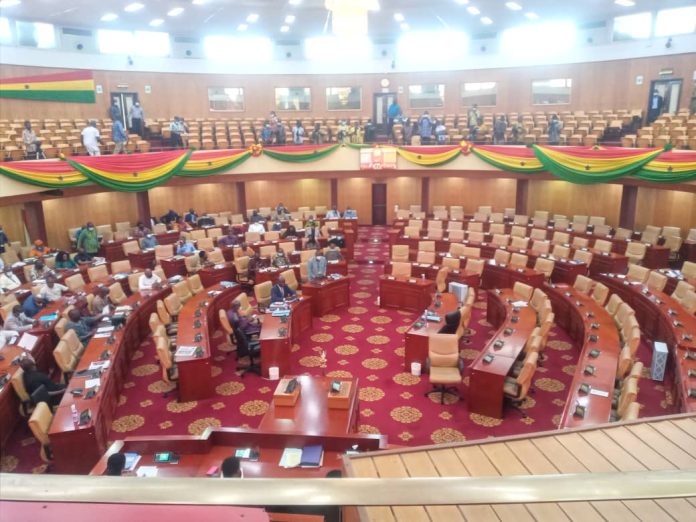|
Getting your Trinity Audio player ready...
|
Ghana’s minority lawmakers rejected next year’s budget proposal over a new levy on electronic money transfers after majority members walked out in protest.
The country’s hung parliament had been deliberating the spending plan proposed by Finance Minister Ken Ofori-Atta, which introduces a 1.75% levy on digital transactions, including mobile-money payments, which has become an indispensable part of how people pay for goods and services using their phones.
“For the first time a majority has walked out from its own business,” Speaker Alban Bagbin said after heated proceedings, which were adjourned until Tuesday.
Mobile-money transactions, first introduced in Ghana in 2009 by the local unit of Johannesburg-based MTN Group, surged 82% to 564 billion cedis ($91.9 billion) last year. In addition to cash transfers, users of the platform can also get loans and buy insurance, without needing to open a bank account. More than 40% of adult Ghanaians do not own a bank account.
The Minority Leader, Haruna Iddrisu, before the rejection of the budget said: “We’ve served due notice that this budget should not be with the policy approval of the E-levy. We will reject the E-levy because it does not serve our collective quest to build a digital economy. The Ghanaian people are suffering. Our concern is whether the E-levy itself will not be a disincentive to the growth of a digital economy in our country. We will not support this budget if that is not withdrawn. We are convinced that the E-levy may as well even be a disincentive to investments and private sector development in our country… We in the Minority will not support government with the introduction of that E-levy.”
Minority MP, Sam George, tweeted after the rejection: “The 2022 Budget has been rejected by Parliament. We as a Minority took a stand with the people of Ghana to reject a budget that had the obnoxious E-Levy, increased government fees and charges. Victory for Ghana.”
“The e-levy is the cornerstone of this budget,” Majority Leader Osei Kyei-Mensah Bonsu said before the walkout. “Where are we going to get the money to do the roads?”
Minority members said the move would affect ordinary Ghanaians and refused to meet with Ofori-Atta who sought to convince them ahead of the budget vote. The country has had a near-identical number of members from each of its two main parties since Dec. 7 elections — a situation that’s complicating President Nana Akufo-Addo’s legislative agenda.
The tax, meant to take effect from February, aimed to help reduce the deficit from an estimated 12.1% of gross domestic product this year to 7.4% in 2022. Those against the move say it would slow financial inclusion, which the country aims to increase to 75% of all adults by 2023 from 58%.
The yield on on Ghana’s dollar bond maturing in 2032 advanced 0.12 basis points to 11.7% after Friday’s budget vote.
Mobile money is the fastest-growing source of income for wireless-network operators like Johannesburg-based MTN and the African units of Vodafone Group. Sub-Saharan Africa has more mobile-money accounts than anywhere else in the world, with about 396 million at the end of 2018, or 46% of all customers, according to the GSMA, the global mobile-operator industry group.
Source: Daily Mail GH with additional files from Bloomberg





